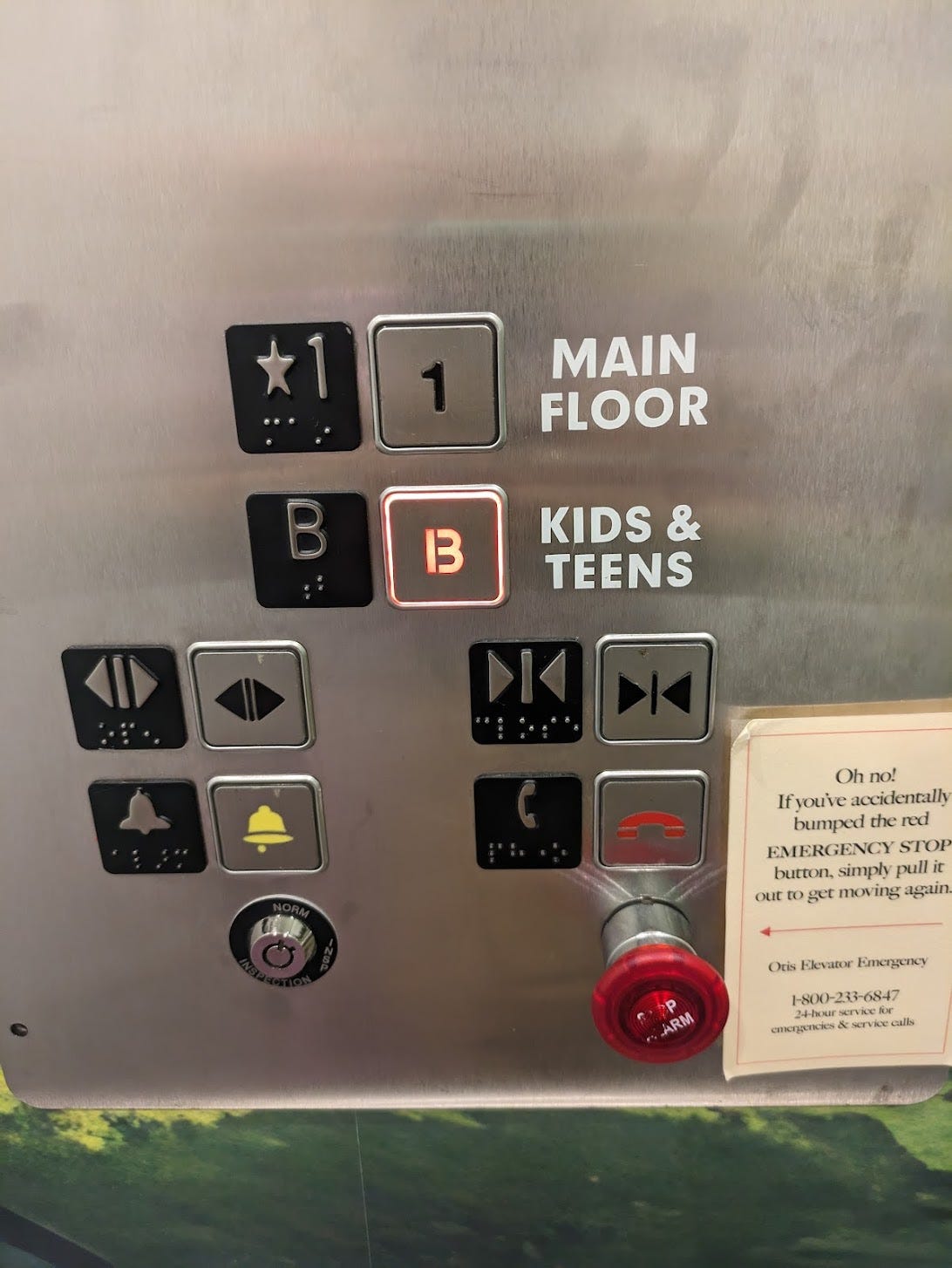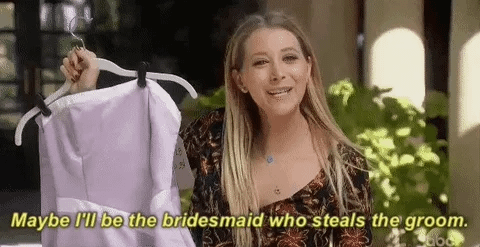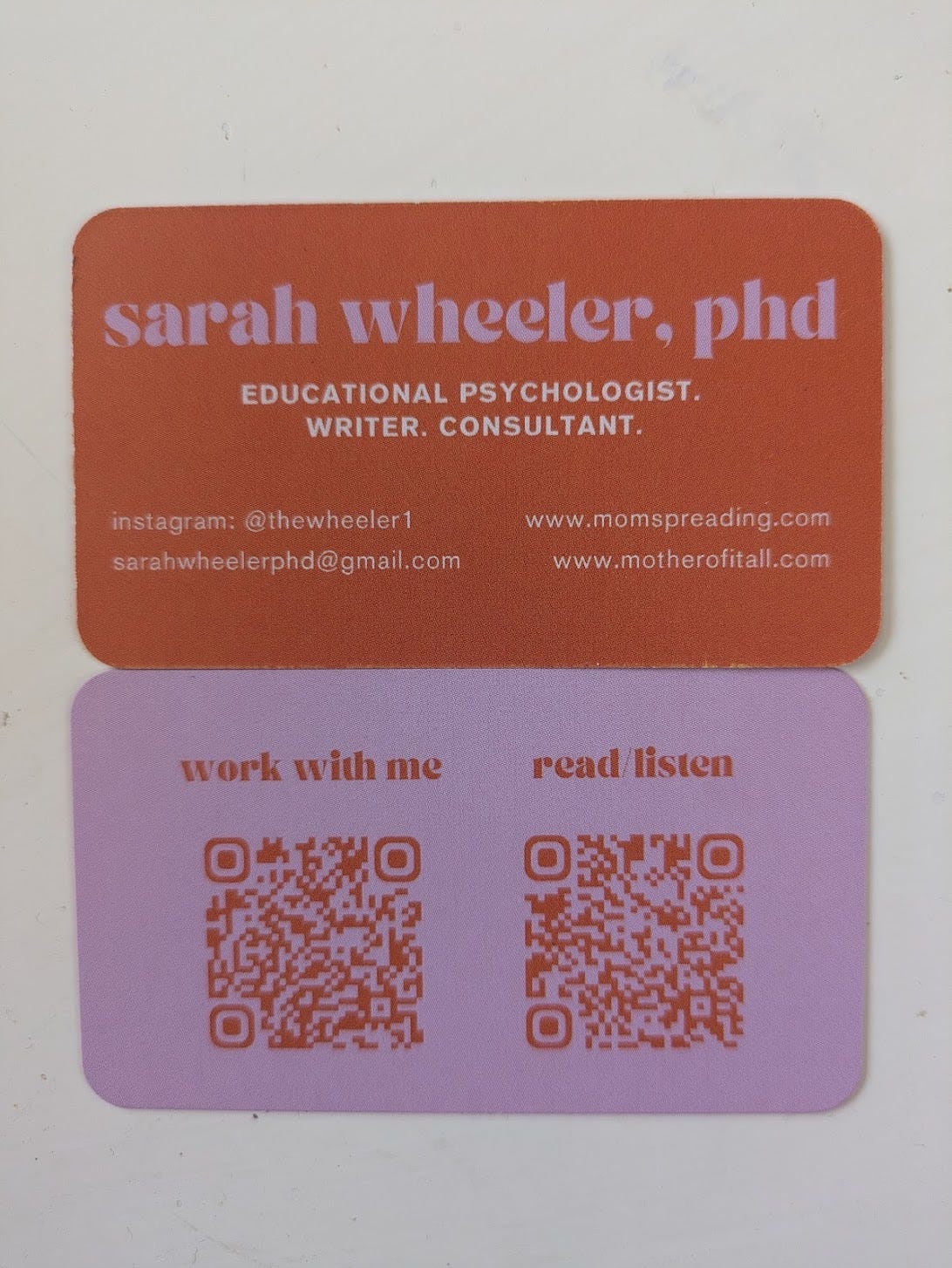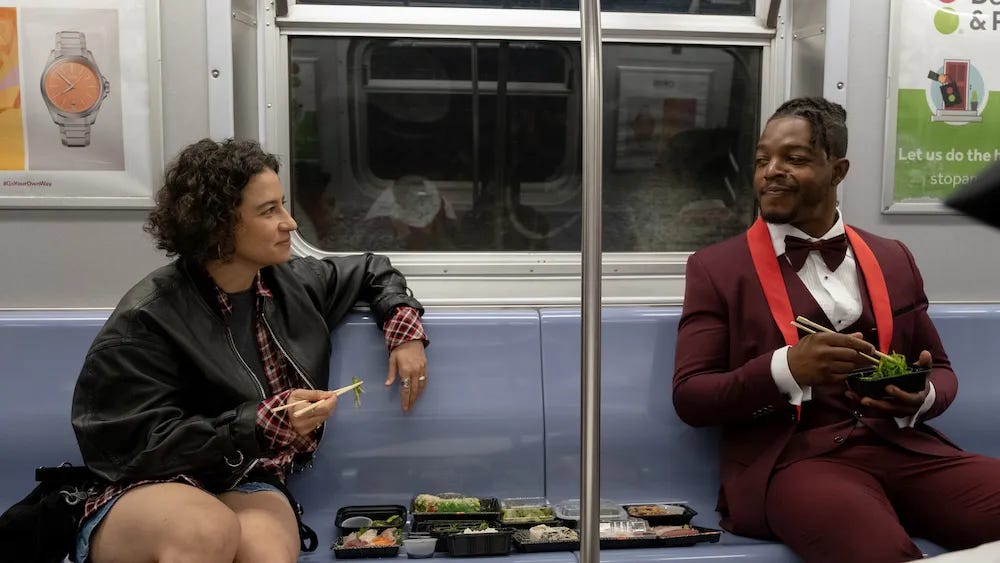If you like this newsletter, I bet you’d enjoy or at least mildly tolerate my podcast, ! We just wrapped up our first season with a killer episode on the millennial mid-life crisis featuring The Cut’s Amil Niazi (of
). And we’re up to a lot this summer, including summer book reports, and a super exciting summer book club for Lucas Mann’s Attachments: Essays on Fatherhood and Other Performances (which the New Yorker can’t shut up about either). Join us and get a great discount on the book here. Also, today is the LAST DAY to get a free copy of the book sent to you if you become a paid subscriber!!!In New York City (without my kids, bless them) a few weeks ago, I met a young male writer. Okay, he was probably like 35, but these days, I peg that as 28. He told me about how he’d recently begun writing fiction. He had found an inspiring teacher and was working on a book of short stories. He was very handsome and very nice. At the end of the night, he asked me what I wrote and how he could find it. Oh, I mumbled, Yeah if you want to, I mean, I have a Substack and I write for, Romper??? And the Cut. It’s like….motherhood stuff.
My brother Ben, bless him, intervened with a well-crafted, enthusiastic inventory of my work, actually gave the young writer the name of my newsletter. Ben sounded like the bio I’d like to write for myself, not the cringy, over-proud one that AI drummed up for a recent workshop I gave (“Sarah is a pioneer in her field!”), but specific and appreciative. I slinked off into the subway, reminding myself to make a new business card, one that would reflect the moniker I have just become comfortable enough to use, writer, and avoid all this talking about what I write and wondering what a 28-or-35-year-old childless dude would think about it.
The next morning, as Ben made me coffee in whatever this is, my brother asked about this interaction. Why didn’t I recommend my work to this stranger? My sister-in-law poked her head out of the shower and added that I should be proud of my writing, that I should sing its praises from the proverbial rooftops. I thought about it. I think, I told them, that I still have this voice inside me that thinks writing about motherhood is insignificant, unserious, too niche, despite the fact that pretty much everyone alive or dead has some connection to it.
But, my brother added, isn’t that part of what you’re trying to dismantle in your work?
Yes (again, he should make me a Wikipedia page). But it’s easier to want things for others than for yourself, to look outwards than in the mirror. I know this from my parenting work. I am so sure that all the parents out there are doing great, should stop worrying about fucking their kids up by saying “good job!” when they draw a janky picture of a house. But me? I should keep worrying. Maybe worry more, in fact.
The next day I took the C to a large, beautiful independent Soho bookstore, looking for copies of Lucas Mann’s Attachments and Ruth Whippman’s Boymom to bring to a friend. The place was lined with tall, lush bookshelves — inviting stairs led to a balcony of books that wrapped around the walls, full of words and ideas. There were large bookcases devoted to staff recommendations, to monthly themes and bargains and categories I’d never thought tied a hundred books together but did. I looked for my titles in New Non-fiction, in Memoir. When I gave in and asked for help, I was told they didn’t carry Mann’s gorgeous collection of essays on fatherhood (it’s no solace that men are also ignored for writing about parenthood, but I suppose it proves the patriarchy harms us all), and pointed towards the Parenting section for Whippman’s book. Oh, where’s that? I asked the I think actually 28-year-old bookseller dude.
The basement.
Parenting wasn’t just in the basement, which could be reached only by a small elevator in the back, no inviting stairs— it filled just one side of a skinny rack there — maybe 50 titles in all. I saw some old friends — Expecting Better, the book I still buy every newly pregnant person in my life, despite my frustrations at times with its author. And Now We Have Everything, the book that shook me to my core with its tale of mundane birth trauma and helped me fall deeply into collegial love with Meaghan O’Connell. Boymom was there — I bought the only copy.
I am torn, even now, between wishing it had been upstairs, in some section on investigative journalism or ambition, and challenging the idea that I couldn’t respect it for being down here in the parenting dumps, always a bridesmaid.
The celebrity Peloton instructor Emma Lovewell, who is actually 35, and who signs off every class with the catchphrase, “Live. Learn. Lovewell.” (Maybe I don’t need a business card, but a catchphrase?), is pregnant. When I saw her riding that bike with her belly, I didn’t know whether to feel it was harmful for pregnant people to have such an unattainable role-model, or beautiful to see a pregnant person working, sweating, living. All throughout my first pregnancy (never the second, it all falls away with the second), when I was even younger than the Lovewell or the short-story writer, I dutifully attended my twice-weekly spin classes. My favorite instructor, a tall, impossibly beautiful queer man, gave shout outs all class, amidst the house remixes of Rihanna. Get it Michelle! I know you’ve got it in you Kelly! But, despite the fact that I was heavily with child, he never once noticed me. Every class, I dreamed up affirmations for him to yell towards my bike in the back. If Sarah can climb this hill, y’all have no excuse! Hell yeah Sarah, riding for two! If this next tabata sends you into labor, Sarah, tell your OB I said you’re welcome!
I wanted to be seen for the work I was doing, and also treated like everyone else. Even now, it is my husband, generous as my brother, who brags to people that I spun until the day before I went into labor (10 days early, thank goddess). I don’t want it to be a big deal. But also, it is. And I do.
I have this bit I do, mostly for myself, about the Civil War. I know it was important, and all, but I find it hard to care about it. Every time a new book comes out about the Civil War, I roll my eyes. Everyone involved in it is dead, there’s not much more to say. War is shit. I’d rather talk about shame or desire. But motherhood carries on, despite the resistance of some to engage in it. When I think about this book proposal I am writing, start to wondering if anyone wants to read another book about motherhood, I remind myself that people are, apparently, still hungry for takes on the Civil War. And despite all of the socio-cultural phenomena that hold that truth up (we idealize war, we take its historical analysis seriously, there are many readers who only read books about war), I hold out hope, and also really truly, I think, believe, that motherhood must be just as accessible, just as urgent, as something a group of long-dead people engaged in for dubious reasons. Of course, there is plenty of room to talk about both motherhood and the Civil War. It’s just that I’d like to make them have to expand that small shelf in the bookstore, I suppose, with my work. And I wonder why something so ubiquitous should keep getting tucked away.
I did make myself a new business card, with the help of a friend, which I imagine is how all the work of mothers gets done. The W word is on it, which I feel less shy about these days. I am nervously practicing my spiel, as I pass it to a stranger, reminding myself that this work is something worth shouting out, something impressive, and at the same time just as natural, as normal, as living, as learning, as loving.
Well, wish me luck.
Also, this:
I have been thinking a lot about onscreen chemistry these days. This, to me, was a chemistry flop (mostly on the part of this meh male character):
And this was a chemistry success!!! Go see Babes, and then tell me you aren’t thinking about being this couple’s third all the time:











I loved this essay. Sarah. I have had many of these same feelings and thoughts as I transitioned from a "serious" science writer to a parenting-focused science writer... like suddenly, it feels like my career has been relegated to the basement? Not that awards matter, but I entered and won a ton of awards as a "serious" science journalist, and now, my writing doesn't even qualify for them. If that's not a sign of being relegated, I don't know what is. And yet... and yet. I know it is important and valued by those who read it. Those people just aren't the the people our society deems "important." Which, I guess, is why our writing is ESPECIALLY important -- we are writing for and giving voice to the oppressed. Anyway. I am rambling, but I am HERE for everything you wrote, and I so value what you do!
FYI, I would 100% watch a 16 part Ken Burn documentary where you talk about motherhood over plaintive violin music. “Dearest Ruth Whippman, I shall not tarry. It has been six fortnights since I first laid eyes on thine tome, Boymom.”